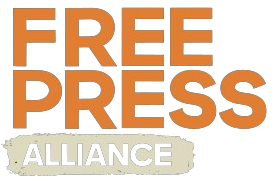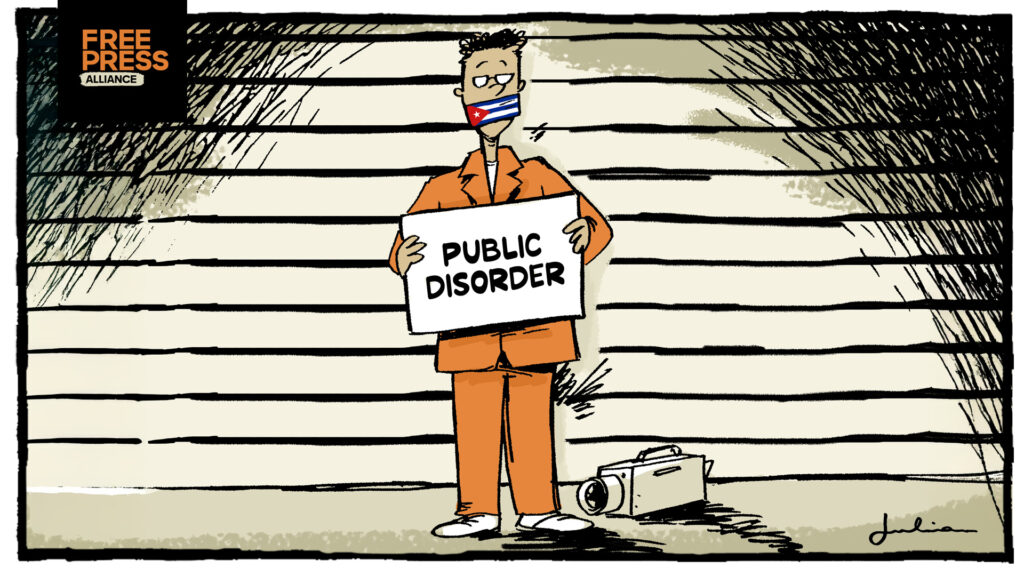In Cuba, journalism that operates outside state control faces significant challenges. While the Cuban government maintains tight control over information through its official media apparatus, a growing number of independent journalists continue to report on issues ranging from civil liberties to economic hardship. These reporters often face retaliation in the form of surveillance, harassment, and imprisonment. As independent journalism emerges as a critical tool for civic engagement and accountability, the Cuban state has intensified its efforts to silence dissenting voices.
Historical Context
Since the 1959 Cuban Revolution led by Fidel Castro, followed by his brother Raúl Castro, and now Miguel Díaz-Canel the government has maintained a media monopoly, using it as a tool to disseminate official ideology and suppress opposition. Independent journalism has long been viewed as a threat to state sovereignty and ideological purity. This hostility has been codified in several legal frameworks that criminalize dissent and restrict freedom of expression.
One of the most notable crackdowns occurred in 2003, during the so called “Black Spring,” when 75 dissidents including 29 journalists were arrested and given lengthy prison sentences under charges of collaborating with foreign powers.
Methods of Repression
Repression of journalists in Cuba is multifaceted and often extrajudicial. Harassment by state security forces is common and includes short-term detentions, home surveillance, and travel restrictions. Journalists report that their phone lines are monitored, their internet access interrupted, and their personal lives invaded.
A recent example involves two independent journalists, Yadiel Hernández and José Gabriel Barrenechea, who were arrested by police. Hernández was detained on January 24 while reporting on drug trafficking at a school in the city of Matanzas, according to 14ymedio. He is currently being held at the Combinado del Sur prison, accused of “propaganda against the constitutional order.”
Barrenechea has been detained for five months, awaiting trial on a “public disorder” charge after participating in a protest on November 8, 2024, in Encrucijada, Villa Clara, following power blackouts caused by Hurricane Rafael. He faces a potential sentence of three to eight years in prison.
Legal tools such as the Social Communication Law grant authorities broad powers to fine, detain, or even force into exile individuals who share so-called “counter-revolutionary” content online. These laws are often applied arbitrarily, with limited avenues for legal recourse. Additionally, the state uses official media outlets to discredit journalists through defamation campaigns, frequently labeling them as “mercenaries” working for foreign interests.
Key Cases and Voices
Several journalists have become powerful symbols of resistance in Cuba’s tightly controlled media environment:
- Yoani Sánchez, founder of the digital platform 14ymedio, has faced ongoing censorship and travel bans.
- Luz Escobar, also of 14ymedio, has been detained multiple times and placed under house arrest to prevent her from covering sensitive events.
- Abraham Jiménez Enoa, a columnist known for reporting on racism, poverty, and government abuses, was forced into exile after years of surveillance and threats.
- Journalist Lázaro Yuri Valle Roca has been detained for six years on charges of disseminating “enemy propaganda.”
These cases exemplify the high personal cost of practicing independent journalism in Cuba.
Government Justifications
The Cuban government often frames independent journalism as a tool of foreign interference. According to journalists from CubaNet, a human rights-focused outlet, during interrogations they are frequently subjected to equipment confiscation and are coerced into signing documents stating they receive payments from international media organizations.
However, according to the affected reporters, the goal of the security agents is to pressure them into abandoning journalism or leaving the country altogether.
“According to them [the agents], all of us who work at CubaNet are destined to degrade and demoralize the achievements of the revolution,” said José Luis Tan Estrada, a journalist at CubaNet, after being interrogated for allegedly violating the new communication law.
This narrative is used to justify repression under the guise of protecting national sovereignty and security.
The Role of International Solidarity
International organizations such as the Committee to Protect Journalists (CPJ), Reporters Without Borders (RSF), and the Inter American Press Association have repeatedly condemned the Cuban government’s treatment of journalists. These organizations bring attention to the shrinking space for free expression on the island, although the tangible impact of their statements is limited due to Cuba’s political isolation and resistance to external influence.
Resistance and Resilience
Despite the repression, Cuba’s independent media sector continues to show resilience and innovation. Journalists use encrypted messaging apps, VPNs, and offshore platforms to bypass censorship and distribute content. Collaborations with international media outlets offer additional protection and visibility.
Citizen journalism has also become a powerful force. During events such as the July 2021 anti-government protests, Cubans turned to social media to share firsthand accounts, often risking arrest in the process.
Conclusion
The repression of independent journalists in Cuba is part of a broader strategy to control public discourse and suppress dissent. Despite high personal and professional risks, many continue their work driven by the belief that press freedom is essential for accountability and democratic change. Their efforts not only inform the Cuban public but also connect the island to the outside world. As Cuba navigates an uncertain political future, independent journalism remains a vital pillar in the fight for transparency and human rights.
From Free Press Alliance, we call on independent journalists and media outlets both in Cuba and around the world to continue reporting on the reality of life on the island. We urge them not to give up in the face of censorship, intimidation, and repression. The Cuban people deserve access to truthful, uncensored information, and their stories must continue to be heard. We stand in solidarity with those who risk their freedom every day to keep the world informed.

